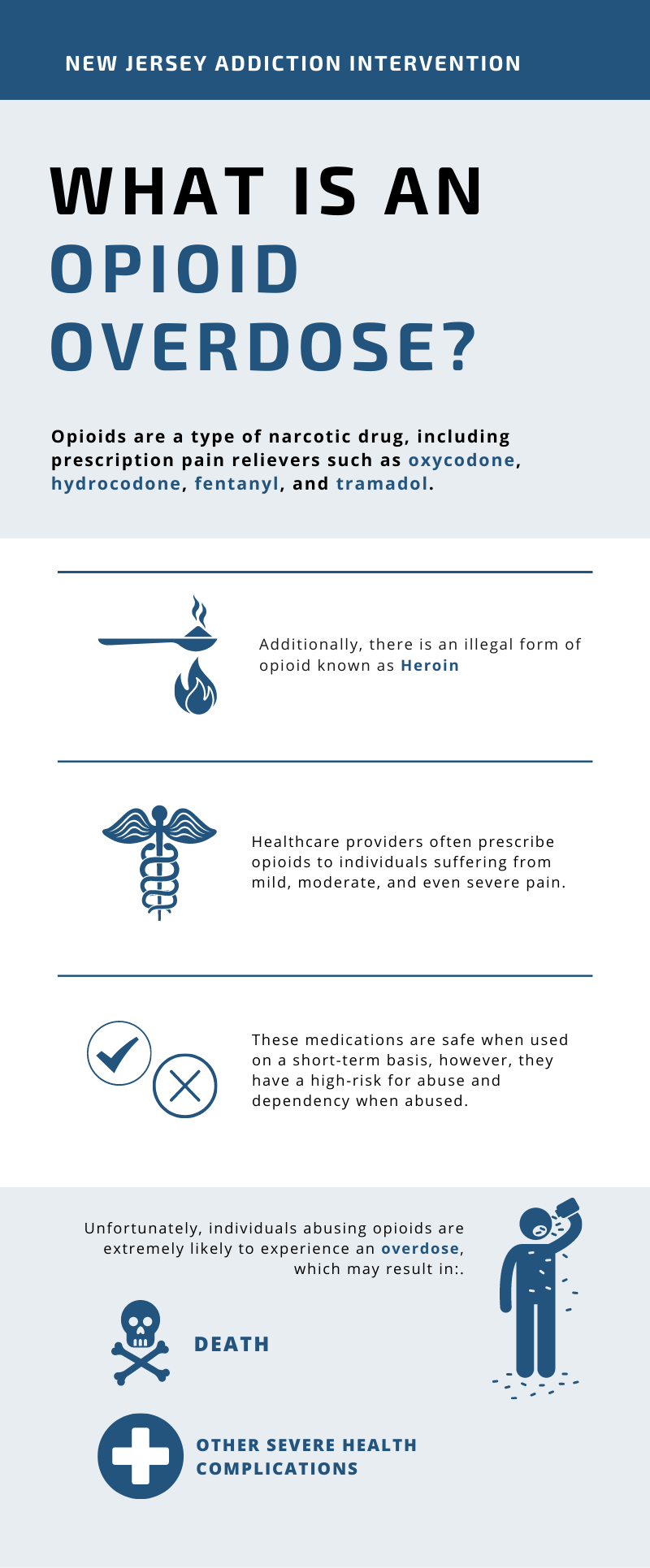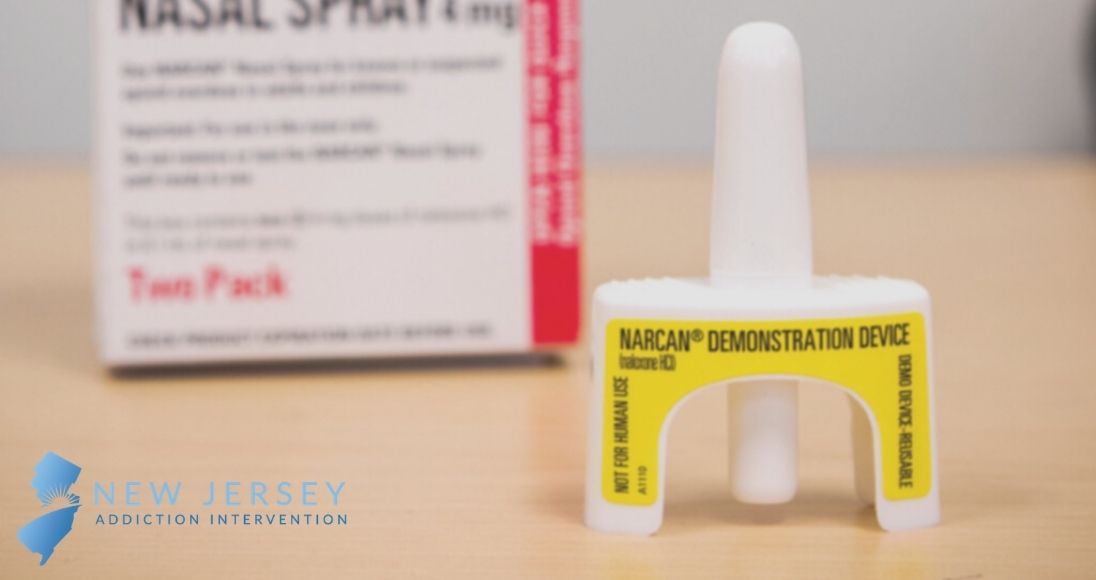American citizens have been falling victim to the raging opioid epidemic for years. According to the Centers for Disease Control and Prevention (CDC), opioid-related overdoses have risen from 21,088 in 2010 to 47,600 in 2017 and remained steady in 2018 with 46,802 deaths.[1]
Unfortunately, the state of New Jersey is no exception. With nearly 3,000 opioid-induced overdoses occurring in 2018, New Jersey is experiencing the harsh reality of the opioid epidemic.[2] Many sources have suggested that the high rates of addiction and overdoses in New Jersey are traced back to the over-prescribing of opioid medications and overall malpractice among the healthcare system. Also, the current COVID-19 pandemic has contributed to the increasing number of opioid-related deaths in New Jersey.
New Jersey state officials have begun taking harm-reduction measures to attempt to combat the increasing rates of opioid overdoses. One of these measures includes providing citizens with 72,000 free doses of Narcan, an antidote that reverses an opioid overdose.[3]
What is an Opioid Overdose?

An opioid overdose occurs when an individual takes too high of a dose of an opioid substance. This causes the slowing or stopping of breathing, which may lead to issues with certain organ functioning and eventually death.
The signs of an opioid overdose include:[4]
- The person’s face becomes pale or feels clammy to the touch
- Limpness in the body
- Purple or bluish fingernails and lips
- The person starts to vomit or making gurgling noises
- Being unconscious or unable to speak
- Slowed breathing and heartrate
If you or a loved one experience symptoms of an opioid overdose, it is crucial to seek emergency medical care immediately. Opioid overdose often results in death without medical intervention. Fortunately, there is an antidote to opioid overdose, known as Narcan (naloxone). However, Narcan is only effective when administered promptly.
New Jersey is Set to Give out 72,000 Doses of Free Naloxone (Narcan)
Narcan, the brand name for Naloxone, is a drug that reverses the effects of an opioid overdose. Some states require police officers to carry Narcan. Additionally, many firefighters, emergency medical personnel, and other first responders carry naloxone.
According to ABC Eyewitness News, New Jersey has begun to allow pharmacies to provide citizens with free Narcan. Many harm-reduction advocates encourage the administration and use of free Narcan nationwide.
Carole Johnson, the commissioner of the New Jersey Department of Human Services, made this statement regarding New Jersey’s new Narcan policies, “You actually can just walk up to the pharmacist and say you’d like your free Narcan, and they will give it to you.”
With the current pandemic raging across the country, opioid overdoses are rising. New Jersey officials have noticed this and taken action by making the opioid-overdose reversal drug, naloxone, accessible to everyone. In fact, New Jersey is prepared to hand out 72,000 free doses of Narcan, giving thousands of people struggling with opioid addiction a second chance at life.
While we know that we can’t force anyone to get sober, Narcan can provide people with a second chance at life so they actually have the opportunity to get sober. It’s a crucial, life-saving medication for people who are affected by the opioid epidemic.
How Does Naloxone Reverse an Opioid Overdose?
Naloxone, or Narcan, is used solely to treat the effects of an opioid overdose. This drug is not meant to treat opioid addiction, however, it does stop the process of opioid-related death. Narcan works by blocking the effects of opioids such as:[5]
- Heroin
- Morphine
- Methadone
- Oxycodone
- Hydromorphone
- Hydrocodone
- Codeine
- Fentanyl
- Buprenorphine
But, how exactly does naloxone work? Simply put, opioid drugs slow an individual’s breathing and heart rate. When an individual takes too much of an opioid substance, their breathing and heart rate becomes dangerously slowed. In fact, the individual’s breathing or heart may stop completely, causing them to die due to the excessive amounts of opioids in their system. However, if administered soon enough, naloxone blocks the effects of opioids by binding to the actual opioid receptors in the brain’s medulla (the area of the brain responsible for slowing down the breathing rate). Narcan is so effective that it will eliminate all existing opioids from the brain’s receptors, counteracting the effects of an opioid overdose.
While naloxone may save an individual’s life who is experiencing an opioid overdose, this drug must be administered quickly. Sometimes, waiting for emergency responders to arrive can cause Narcan to be ineffective. Fortunately, New Jersey officials have considered this and taken action by allowing citizens to obtain naloxone for free at their local pharmacy.[3]
Treatment for Opioid Abuse in New Jersey
If you or a loved one have experienced an opioid overdose in New Jersey, you likely suffer from an addiction to opioids. Addiction to opioids must be treated with professional treatment that includes medically-assisted detox. Fortunately, New Jersey Interventions can help you find the right combination of addiction treatment to combat opioid addiction and obtain long-term sobriety. Contact us today for more information on how to find an opioid addiction treatment center near you.
References:
- https://www.drugabuse.gov/drug-topics/trends-statistics/overdose-death-rates
- https://www.drugabuse.gov/drug-topics/opioids/opioid-summaries-by-state/new-jersey-opioid-involved-deaths-related-harms
- https://abc7ny.com/health/nj-giving-away-72000-doses-of-narcan-to-combat-drug-overdoses/6504624/
- https://medlineplus.gov/opioidoverdose.html
- https://www.webmd.com/mental-health/addiction/drug-overdose-naloxone#1
Medically Reviewed: September 24, 2020

All of the information on this page has been reviewed and verified by a certified addiction professional.

